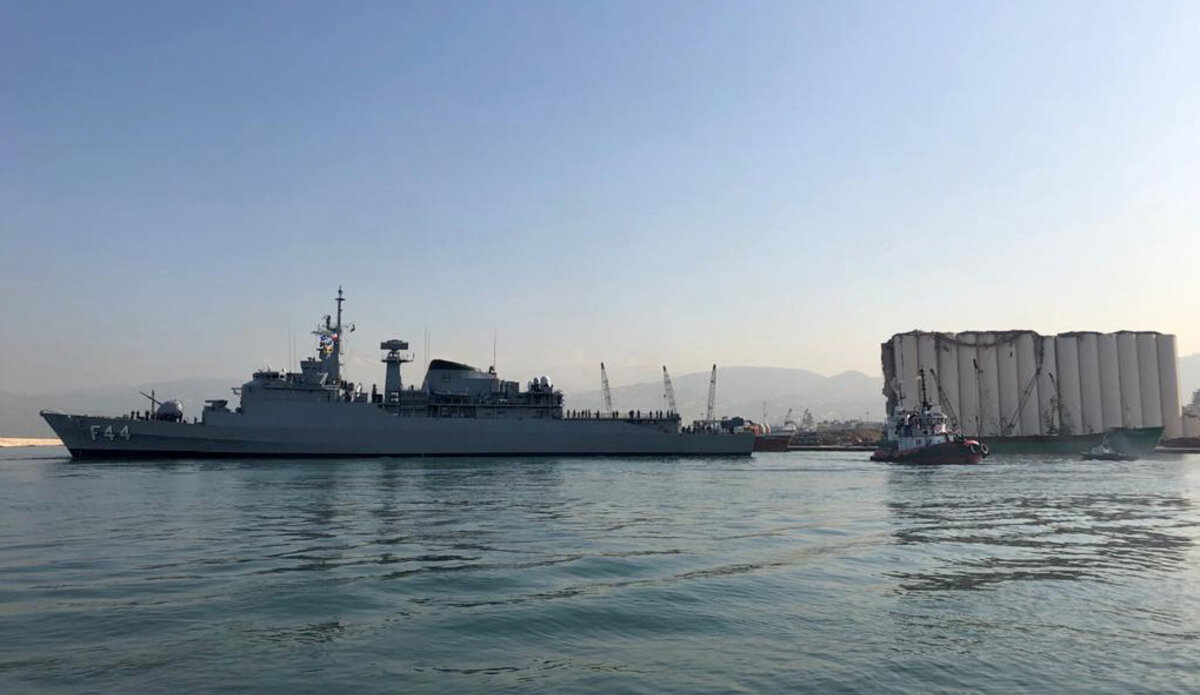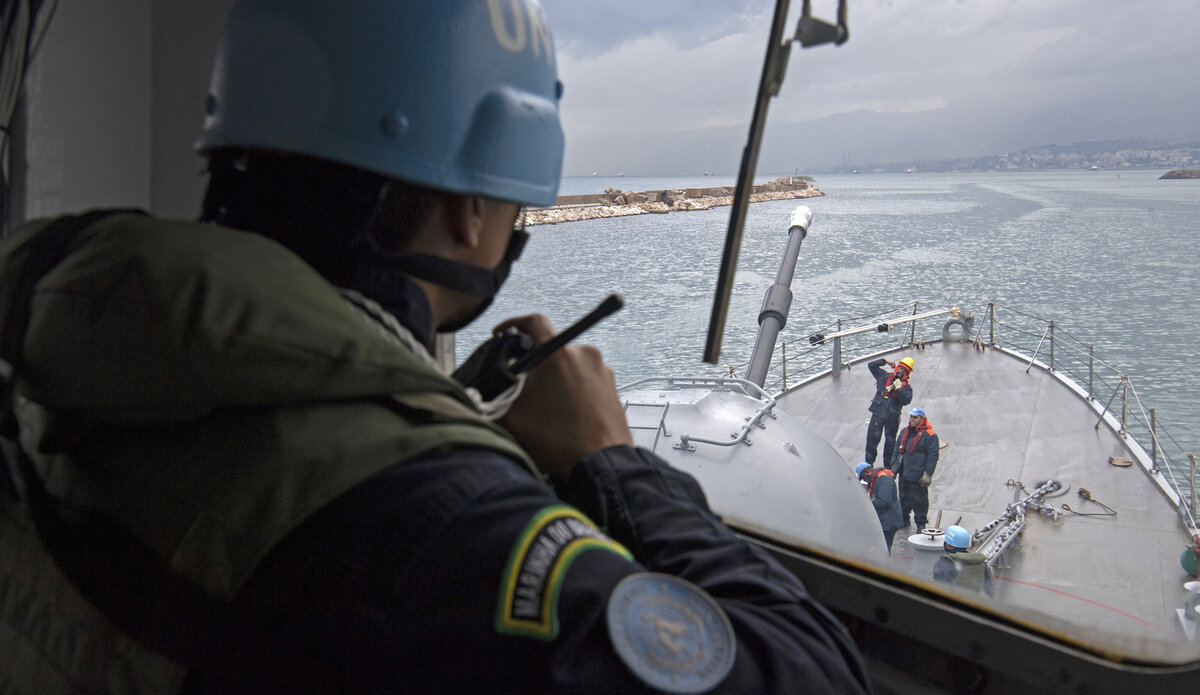Brazilian naval peacekeepers conclude UNIFIL mission after a decade
After almost a decade-long service with UNIFIL’s Maritime Task Force (MTF), assisting Lebanese Navy in securing the country’s vast territorial waters, the Mission’s Brazilian peacekeepers concluded their mission with UNIFIL before returning to home today.
Also concluding the UNIFIL mission today, together with more than 200 Brazilian sailors, was the MTF flagship, frigate BRS Independência after nine months of service.
Brazilian peacekeepers led MTF, which until the latest departure had six ships and about 800 sailors, since 2011. Five ships – one each from Bangladesh, Germany, Greece, Indonesia and Turkey – will continue to carry out the mandated tasks at sea.
As the UN Peacekeeping’s first and only major naval component, UNIFIL MTF was deployed on 15 October 2006 at the request of the Government of Lebanon. A total of 15 countries have contributed to the MTF, which supports the Lebanese Navy in preventing the unauthorized entry of arms or related materiel by sea into Lebanon.
Its mission also focuses on assisting Lebanon raise its own naval forces to control and protect Lebanon's seaways and territorial waters. In order to achieve that, MTF carries out a range of different training courses and coordinated exercises with the LAF Navy in order to prepare it to assume all duties required for maritime security, protecting Lebanon's sovereignty and supporting economic investment.
Speaking on behalf of the UNIFIL Head of Mission and Force Commander Major General Stefano Del Col during a farewell ceremony onboard Independência yesterday, Deputy Force Commander Brigadier General Irvine Nii-Ayitey Aryeetey paid tribute to the service of the outgoing Brazilian peacekeepers.
“Today, we bid farewell to the outgoing MTF ship, and it is a remarkable date for UNIFIL, MTF and, of course, for the Brazilian Navy, after almost 10 uninterrupted years in support and contribution to the cause of peace in Lebanon,” he said.
“I praise you all for your tireless dedication and professionalism, especially in this year, with all the challenges of the COVID-19 pandemic and the blast here at the Beirut Port,” Brig. Gen. Aryeetey continued. “Through hard work and dedication, the Frigate Independência, representing here the Maritime Task Force and its sailors, has proven that, dominating the maritime domain can bring benefits to peacekeeping operations and economic development by ensuring a safe maritime environment.”
On his part, the outgoing MTF Commander, Rear Admiral Sérgio Renato Berna Salgueirinho, said Brazil’s participation in the UNIFIL MTF contributed directly to the maintenance of peace “in such important mission,” adding that the departure was a “historical moment.”
“This accomplishment will always be remembered in the Brazilian Navy, as well as it will be recorded in the history of UNIFIL,” he said. “Overcoming unprecedented challenges, in such a particular year for all of us, I recognize that you, men and women, peacekeeping crew members of the Frigate Independência, have worked hard to fulfil this mission.
Since 2006, MTF has hailed 106,000 ships and referred about 15,000 of those vessels to the Lebanese authorities for further inspections, at sea or land. MTF’s area of maritime operations (5,000 nautical square miles or 17,171 square kilometres) is almost 16 times bigger than the area of UNIFIL area of operations on land in south Lebanon.
 UN
UN United Nations Peacekeeping
United Nations Peacekeeping








